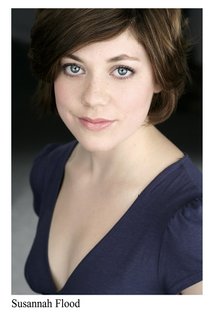

With these casting choices in place, audience members are asked to consider characters that navigate multiple vectors of identity, including those that are racial, gendered, linguistic, or class-based. This Mayella’s linguistic affiliation with her father undermines her respectability within the court, as her gestures paradoxically reveal both her father’s exploitation and a means of her rebellion. Director Marion McClinton cast hearing actor Susannah Flood as Mayella Ewell,5 established in this production as a CODA (Child Of Deaf Adults).6 Flood’s performance recuperates Mayella, a character frequently demeaned and discounted within the text and in literary scholarship. Such credibility is at stake in the accusation that Mayella was raped, a claim that dooms Tom Robinson.

Seago’s linguistic flexibility becomes central to the production’s exploration of characters’ perceived respectability and, as a result, of their deemed credibility. OSF, a much-awarded Shakespeare Festival, had a long-standing tradition of diverse casts prior to Howie Seago’s hiring in 2009.4 Able to perform in spoken English, American Sign Language (ASL), or a modified ASL, Seago offers a number of linguistic opportunities for his characters. Through Seago and Flood’s characters’ spoken and signed dialogue, this production creates a vital new space to understand the damning and restorative power of language and community. However, their language usage also clarifies Mayella’s resentment of and resistance to her father. The pair’s use of home sign, a shared gestural language, offers another vector for onstage characters to see the abuse within the Ewell home-thereby challenging the Ewells’ respectability within the courtroom. However, Seago uses his character’s hearing status and language usage as “intervening portion of something,” advancing Ewell’s violent agenda in opportunistic ways that expose how marginalization operates in Maycomb.3 Seago’s iteration of Bob Ewell and the performance of Susannah Flood as Mayella Ewell offer additional interpretative possibilities for audience members. This layered language usage allows audience members to witness an “open space lying between…two parts of the same thing a gap, opening.”2 Any production of To Kill a Mockingbird offers a sinister version of Ewell, certainly. By casting noted Deaf actor Howie Seago as Bob Ewell and reconsidering the character’s language use, the production exploits the gap between the playscript and the audience members’ interpretations.1 The casting allows for both gestural and verbal languages in the courtroom, thereby creating a conspicuous interval in the courtroom scene.


The Oregon Shakespeare Festival’s 2011 production of To Kill a Mockingbird offers complicated ways to think about characters’ relationships to justice, entitlement, and community.


 0 kommentar(er)
0 kommentar(er)
